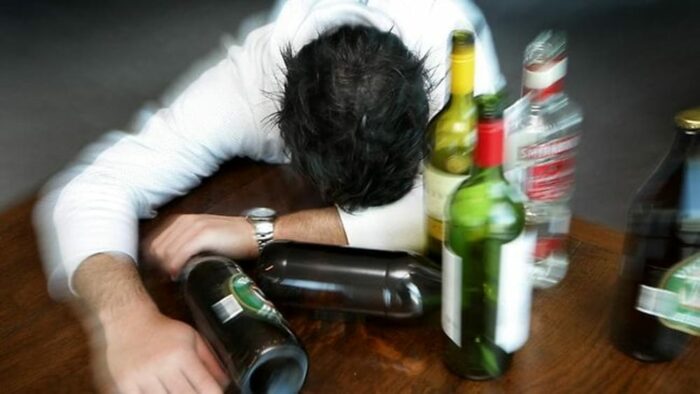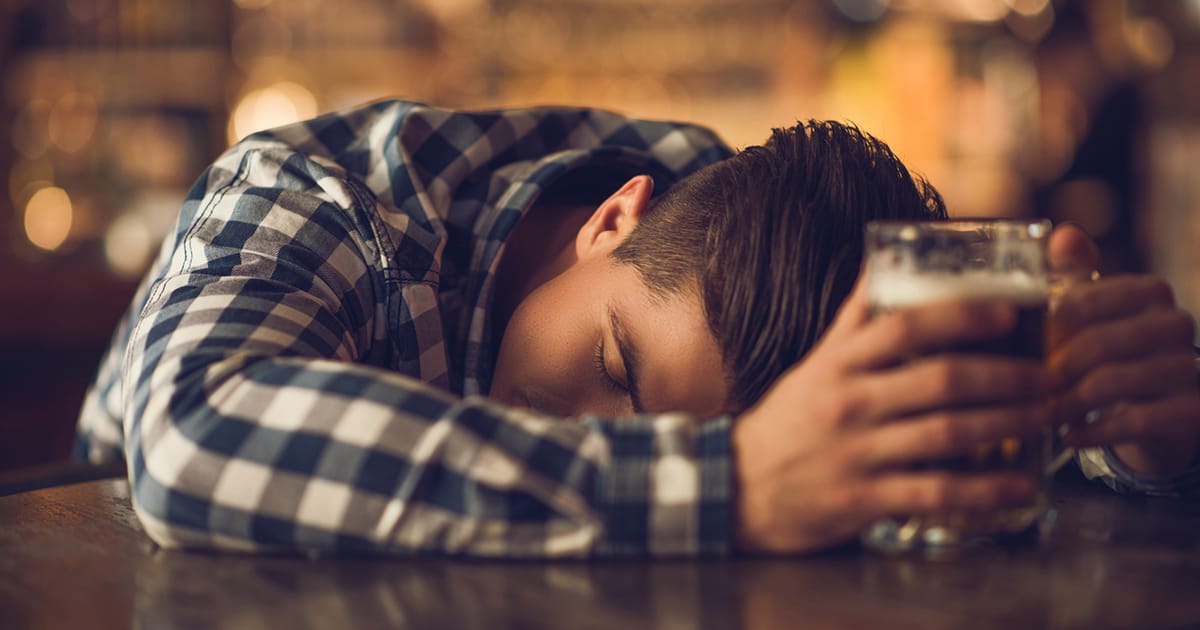Binge drinking frequently leads to divorce, emotional pain, failure in pursuits, and other problems in older adults.
A nationwide poll found that 33% of college students binge drank, while 53% admitted to drinking in the previous month.
Alcoholism and other undesirable outcomes, including liver damage, interpersonal issues, and money problems, can result from drinking, which can be addictive.
According to research, 70% of binge drinking incidents involve people who are 26 years of age or older.
This is problematic since binge drinking has been linked to a number of health issues, such as liver disease, high blood pressure, and an increased chance of developing certain malignancies.
People should be aware of the hazards of binge drinking and get treatment if they have problems with alcohol misuse.
How Do The Effects Of Alcohol Change With Age?
Alcohol consumption may need to be reduced or avoided entirely for older persons due to medical conditions or prescription medications.
They could also see that their body reacts to drinking differently, which increases their risk of mishaps like slips, breaks, and automobile accidents.
To lessen their risk of injury, older persons should consume alcohol in moderation or not at all.
They should also discuss any drugs that could interact with alcohol with their healthcare physician.
Major life upheavals like losing a loved one, moving to a new place, or declining health can cause older persons to develop a dangerous dependency on alcohol.
Older persons should seek support from friends, family, or mental health specialists to manage and preserve their general well-being.
By encouraging persons who struggle with alcohol abuse or alcohol use disorder to seek professional assistance and offer emotional support, loved ones may play a key part in their recovery.
Sobering Up In The Late 30s

Quarterlife crises are a significant problem for many people since they signal the transition from adolescence to full maturity.
People frequently feel emotions, from joy to dread, and can even exhibit signs of anxiety and melancholy.
This is due to the fact that reaching the age of 30 is seen as a significant life milestone, indicating the end of youth and the start of genuine maturity.
Individuals frequently struggle between the desire for security and the desire for adventure, which can result in a quarter-life crisis.
Given below are some tips that will help you avoid binge drinking in the late 30s—
1. Set Your Boundaries When Drinking To Release Tension
It’s common knowledge that folks in their late 30s will indulge in binge drinking. Yet, binge drinking can have detrimental effects, including poor judgment, accidents, health issues, and addiction.
Knowing your boundaries and using alcohol properly is crucial since it may cause impaired judgment, accidents, health issues, and addiction.
Frequently, it is not perceived as strange or bad when everyone acts the same way. Alcohol abuse can have harmful long-term effects, including liver damage and addiction.
Older folks are more likely to binge drink than younger adults because alcohol can profoundly impact their bodies as they age.
Excessive drinking can result in accidents, reckless behavior, drink-driving, and even physical altercations. Adult binge drinkers could feel embarrassed by the circumstances they find themselves in.
2. Look For Replacements
Alcohol intake can be decreased by substituting low-alcohol beer, wine, or soda water for traditional drinking methods.
It might also be beneficial to ask friends, relatives, or a professional for assistance.
It is crucial to remember that altering one’s drinking behavior might be difficult but that a healthy lifestyle is achievable with perseverance and support.
The body can digest alcohol more easily with only a few glasses of soda water with lime.
In addition, if you’re trying to limit your alcohol consumption, non-alcoholic beverages can also be a great option. You can learn about hemp infused drinks and find a range of non-alcoholic replacements that can give you a buzz but not hangovers.
Setting limits for yourself and sticking to them might also help you moderate your alcohol consumption. Drinking responsibly is essential to keeping up a healthy lifestyle.
3. Associate With Sober People
A friendship group’s culture may be strengthened and made more meaningful by fostering positivity and support.
Even if it means declining invitations to particular social gatherings or activities, it’s crucial to establish boundaries and put one’s personal well-being first.
This might be difficult since it can be the hardest thing to refuse the extra drink and provide an explanation.
Developing a pleasant and encouraging culture may result in closer and more satisfying connections.
Genuine friends will agree with your choice and accept your boundaries. It could be time to rethink your friendships and look for new ones that support your ideals and objectives if your current group is not encouraging.
Taking care of oneself is crucial, and preparing solutions for tight situations may be useful. Also, consider non-alcoholic options, such as mocktails or sparkling water.
4. Analyze The Pros And Cons Of Drinking
Before binge drinking, it’s crucial to consider the long-term effects, such as alcohol poisoning, liver damage, addiction, poor judgment, and unsafe conduct.
Finding a support system that uplifts and keeps you responsible through trying times, such as friends, family, or a therapist.
Binge drinking may harm relationships, employment or academic performance, general physical and mental health, alcohol poisoning, liver damage, addiction, and poor judgment.
It’s crucial to remember that alcoholism is a severe illness that may have long-lasting impacts on physical and mental health. Getting support from family and friends and professional aid can significantly improve your chances of beating the addiction.
5. Recognize And Avoid Your Triggers
Asking yourself why you consume alcohol to become drunk routinely is vital if you do this.
Getting expert assistance if dealing with alcoholism may be a critical first step towards recovery and enhancing your general well-being.
Find more healthy coping techniques and be aware of any triggers that make you want to drink excessively.
Addressing any underlying difficulties connected to your drinking habits may also be facilitated by seeking professional assistance or support from loved ones.
Setting reasonable objectives and restrictions for your alcohol use might also help you control your drinking patterns.
Remember that moving towards a healthy lifestyle is a journey, and seeking assistance is acceptable.
Change Your Habits With Age
Research has demonstrated that the consequences of excessive alcohol intake in the twenties can persist throughout life, supporting the idea that these effects might be felt for the rest of one’s life.
This is because people have a higher tolerance for alcohol in their twenties, so they are more likely to binge drink and may not have as severe of a hangover as they would in their thirties.
Due to this, young adults now have a higher tolerance for alcohol, which might result in binge drinking.




